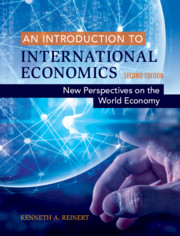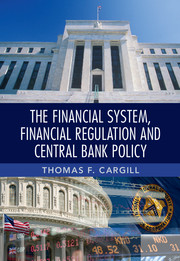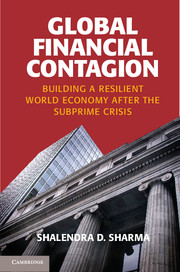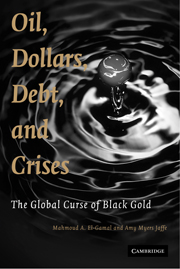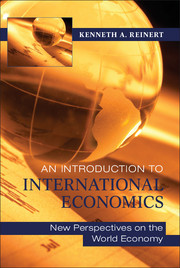An Introduction to International Economics
This book is designed for a one-semester course in international economics, primarily targeting non-economics majors and programs in business, international relations, public policy, and development studies. It has been written to make international economics accessible to both students and professionals. Assuming a minimal background in economics and mathematics, the textbook goes beyond the usual trade-finance dichotomy to address international trade, international production, and international finance; and takes a practitioner point of view rather than a standard academic one, introducing students to the material needed to become effective analysts in international economic policy. This new edition features such additional topics as global production and global capital flows, migration, the Ricardian model, and international organizations like the IMF. Examples have been updated to include recent developments (Brexit, for example) and all charts include the latest data. The website for the text can be found at http://iie.gmu.edu.
- Includes chapters on the World Trade Organization and the International Monetary fund, placing theories of international economics within the larger context in which they operate
- Can be used in international relations, development policy, and international business programs, making it accessible to a large audience across disciplines
- Accessible to non-traditional students and students who have not had intermediate-level theory
Reviews & endorsements
'One of the rare economics textbooks that students actually enjoy reading. Kenneth A. Reinert covers an enormous range of material on international economics succinctly and in a language that students can understand. It is the perfect book for a one-semester course on international trade and finance, which also offers chapters on multinational enterprises and international production for professors who wish to emphasize those topics.' Robert A. Blecker, American University, Washington DC
'This is a lively book, written with great clarity. It does not overwhelm the students and yet manages to teach them the basic theory, and its application to policy problems, with great effectiveness.' Arvind Panagariya, Columbia University, New York
'Students loved this text because of its breadth of content, depth of analysis, and overall accessibility. I would not hesitate to use this book again, particularly in an interdisciplinary environment.' Jonathan B. Wight, University of Richmond
'This is an excellent textbook on International Economics. It provides comprehensive coverage of all the important topics within the subject. It makes a compelling case for economic openness, but it treats modern critiques of globalisation seriously … The book does a great job of covering policy. It discusses the political economy aspects of many international economics issues and the various policy approaches that countries have taken.’ Robert Breunig, Economic Record
‘… highly recommended as a primary text for a course on international economics or as a supplementary text for a broader course that includes some international trade, production or finance.’ Robert Breunig, Economic Record
Product details
October 2020Hardback
9781108470056
276 pages
252 × 196 × 30 mm
1.36kg
120 b/w illus. 46 tables
Available
Table of Contents
- Preface
- Acronyms
- List of symbols
- 1. Introduction
- Part I. International Trade:
- 2. Absolute advantage
- 3. Ricardian model of comparative advantage
- 4. Heckscher-Ohlin model of comparative advantage
- 5. Intra-industry trade
- 6. The political economy of trade
- 7. Trade policy analysis
- 8. The World Trade Organization
- 9. Preferential trade agreements
- Part II. International Production:
- 10. Multinational enterprises and foreign direct investment
- 11. Global value chains
- 12. Engaging international production
- 13. Migration
- Part III. International Finance:
- 14. Accounting frameworks
- 15. Global capital flows
- 16. Exchange rates and purchasing power parity
- 17. Flexible exchange rates
- 18. Fixed exchange rates
- 19. The international monetary system
- 20. Crises and responses
- 21. Monetary unions
- 22. Growth in the open economy
- Glossary
- Index.

